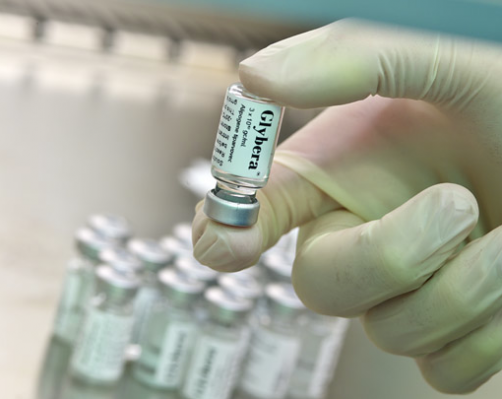
Uniqure withdraws €1m drug Glybera from market
With treatment cost of €1m+ per patient, Glybera was the most expensive therapy ever approved in Europe. Now, Uniqure has decided to terminate post-marketing studies required for prolongation of its existing EU conditional market approval.
Uniqure’s CEO Matthew Kapusta stated that the EU market withdrawal of the AAV-based gene therapy to treat the rare inherited disorder lipoprotein lipase deficiency (LPLD) is not related to any risk-benefit concern but that Glybera’s (alipogene tiparvovec) usage has been extremely limited. He added that we do not envision patient demand increasing materially in the years ahead. After EU market approval in 2012, former CEO Joern Aldag had estimated that there were not more than 350-700 LPLD patients in Europe. Patients approved for treatment before 25 October 2017 will continue to be supplied with Glybera under Uniqure’s commercialisation deal with Chiesi Farmaceutici at a nominal price. However, Uniqure announced it will terminate the obligatory Phase IV post-approval study, 50% co-financed by Chiesi, which holds an equity stake of €31m in the Dutch company. Commercialisation of Uniqure’s hemophilia B gene therapy under the deal won’t be affected by the Glybera withdrawal. Uniqure expects to reduce expenses by US$2m annually starting in 2018 due to Glybera outphasing from market.
Amsterdam-based uniQure biopharma B.V was the first company in the world to have been given the green light by the European Medicines Agency (EMA) to market a gene therapy in Europe. Glybera is an AAV vector that expresses the gene that is defective in patients with the rare inherited disorder lipoprotein lipase deficiency. Glybera’s market approval in 2012 was a story of ups and downs. Twice, the EMA’s Committee for Advanced Therapies (CAT) rejected market authorisation against CHMP recommendations. The bankrupt parent company Amsterdam Molecular Therapies was renamed Uniqure and finally got market approval in the third trial with a 16 to 15 vote in the CAT and CHMP and backing from the European Commission. Previously, Uniqure had changed the endpoint of its pivotal study. In 5 out of 27 patients, Uniqure proved that chylomicrons – not high blood triglyceride levels as thought before – were responsible for the development of acute pancreatitis. Uniqure demonstrated in this limited patient population that Glybera reduced chylomicron concentration and the number of pancreatitis cases, the new primary endpoint. However, while the EMA granted conditional market authorisation with the obligation to include 12 additional patients by 2017 in a post-marketing study and to establish a Europe-wide patient registry and documentation, the US FDA was not convinced by the data. After the US agency requested two pivotal studies from Uniqure as a MAA requirement, the drug maker dropped US commercialisation plans in 2015.
At the time of publication of Uniqure’s announcement, it was not clear if the results of the post-marketing study would confirm the company’s previous claim that Glybera is a one-time treatment that is effective for years. The company used that claim in pricing negotiations with payers willing to carry out pilot programmes to finance the costly treatment.


 Getty Images for Unsplash+
Getty Images for Unsplash+ Immunic/Nela Dorner
Immunic/Nela Dorner